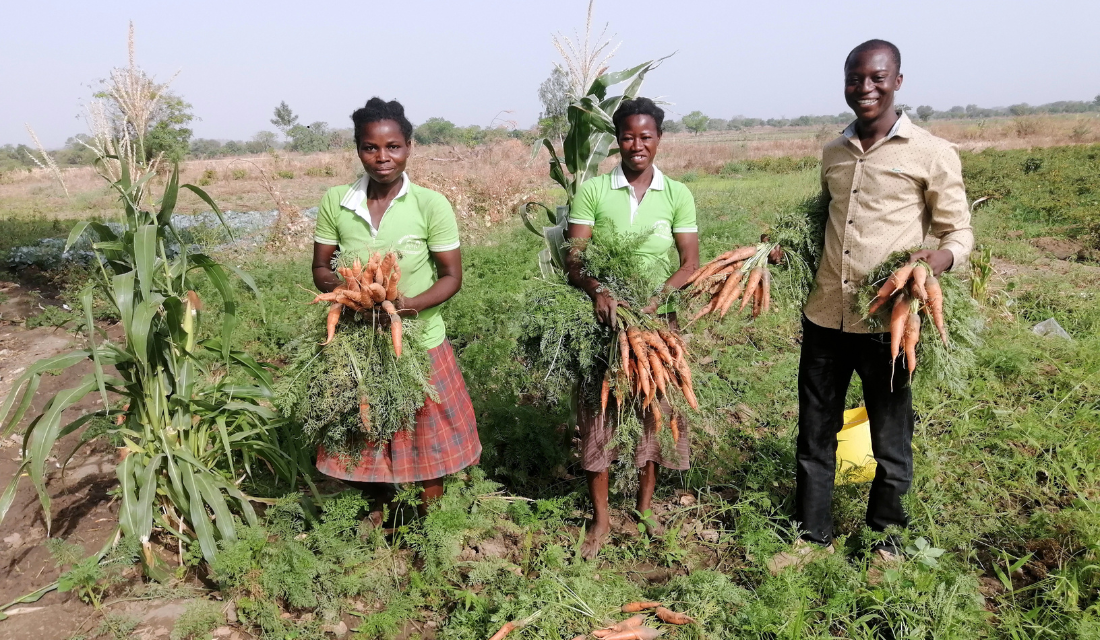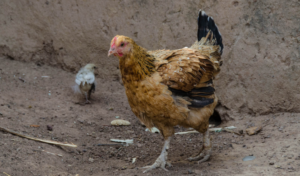Kitchen Gardens Help Children Thrive In Ghana

In the Upper Eastern Region of Ghana, Patricia, and other farmers in her rural community, Adabinsa, raise chickens, goats and sheep. They also grow crops like sorghum, maize, rice and groundnuts. These foods can be stored and used through the dry months when the soil is hardened and lacking nutrients, and the winds create unstable growing conditions.
Cooking meals from what is readily available–like tuo-zaafi, consisting mainly of sorghum and maize– is common. Though practical, many in the community have diets that are unbalanced.
Moments That Matter® (MTM), a program partnership of Episcopal Relief & Development, addresses the needs of young children up to age three while equipping their caregivers and communities to support their healthy development. Communities work together to implement responsive caregiving, provide access to health care and nutrition, and stimulate young minds through early learning and play opportunities.
In Ghana, Episcopal Relief & Development partners with the Anglican Diocesan Development and Relief Organization (ADDRO) to introduce activities to help foster healthy child development as well as support improved nutrition through cooking demonstrations and advise on kitchen gardens.
MTM is made successful by community members including faith leaders, local early childhood development (ECD) committees and ECD Promoters. These local volunteers make monthly home visits to get to know families and reinforce key learnings on parenting, monitor changes across key developmental milestones and provide referrals to additional resources as necessary.
For Patricia, MTM changed her view of a balanced diet and taught her new ways to prepare meals for her family.

During their visits, ECD Promoters often share images and stories, and coach families on adaptations they can implement based on the foods and resources available to them.
“Some of the vegetables in the [images shown] were not common in our community,” Patricia said.
Adding, “But, the promoter showed us that there are other kinds in my community that could serve the same purpose.”
Through MTM, caregivers in the community were also offered support to grow their own vegetables at home.
“I immediately expressed interest,” she said. “I grew carrots, lettuce, cabbage, cucumbers and tomatoes in my garden.”
Caregivers were trained and given seedlings for their own home gardens. Members also participated in cooking classes organized by ADDRO in collaboration with nutrition officers of the Ghana Health Service.
This new lifestyle has provided a way for Patricia’s family to gain more financial stability as well.
“I also make extra income from the sale of some of the crops from my kitchen garden,” she said. “That is additional income I never expected.”
With the extra income, Patricia purchased another goat, which further supports her farming business as well as her ability to cook nutritious meals for her entire family. By creating more stability and cooking a more balanced diet, Patricia is strengthening her family so her children can thrive.
“My family is so excited and ever grateful to ADDRO for bringing such interventions,” she said.
View Episcopal Relief & Development’s 2022 Annual Report for more stories of lasting change.


